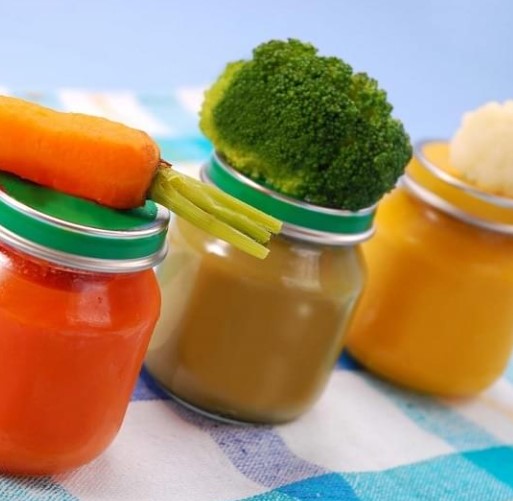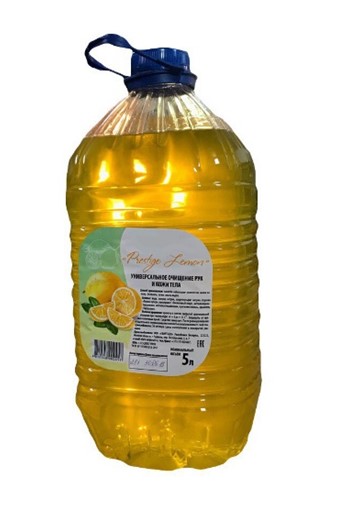General Director of JSC "Bellakt": we plan to double the capacity for the production of dry baby food

April 10, Volkovysk. JSC "Bellakt" plans to increase the capacity for the production of dry baby food by 2 times. Vitaly Lupik, General DIRECTOR of OJSC "Bellakt", told the journalists about this .
"We produce 600 tons of dry baby food every month. Our production capacity allows us to produce 700 tons, that is, we have a small gap now, which we have already filled with our partners. 50% of baby food is exported, half is domestic market. At this stage, the design of the baby food shop according to the GMP standard is underway, which will increase production capacity by 2 times," said Vitaliy Lupik.
The HEAD of the enterprise explained that this was due to the fact that baby foodat the moment, it is in great demand and the production capacities that are at this stage do not satisfy consumer demand. According to Vitaliy Lupyk, dry formulas, cereals, hypoallergenic and therapeutic formulas, as well as anti-reflux mixtures are produced in the baby food segment in Vaukavysk. "The entire range that we produce is in demand at the moment in the East and in Africa too. We have prospects for the development of our trade relations with Zimbabwe. The plans include the production of baby food in large containers, and the packaging of baby food - already directly in Zimbabwe "At the same time, Zimbabwe's neighbors are also interested in our products, baby food. This is a crazy market - 500 million people in neighboring countries. Our pricing policy satisfies our partners. Accordingly, we can move in this direction,"
OJSC "Bellakt" processes 700 tons of MILK daily. The company exports its products to 20 countries of the world. Baby food is supplied to 15 countries. The main buyers of baby food are Pakistan, Uzbekistan , Syria, Turkey , RUSSIA .
Today, the wife of the President of the Republic of Zimbabwe, Oxilia Mnangagwa, visited Bellakt OJSC. During the negotiations, various options for cooperation were considered: from the supply of finished products to Zimbabwe to the transfer of part of the technological operations to the country, as well as the construction of a full-fledged production in Zimbabwe.
Read together with it:
- Reuters has learned of India's new demand for companies over Russian oil.The origin of oil supplies is usually reflected in companies' monthly reports, but now they are required to report supplies from RUSSIA on a weekly basis.REUTERS believes the new demands are linked to India's plans for a deal with the US. The Indian Oil Ministry's Petroleum Planning and Analysis Cell (PPAC) has begun requesting information from refineries on crude imports from Russia and the Unite...
- Russian meat exports to China are expected to grow to 300,000 tons by 2025.This growth marks significant progress in the country's agricultural sector, especially in light of past difficulties. Cooperation between RUSSIA and CHINA in agriculture is rapidly expanding: 35 protocols have been signed regulating the supply of various agricultural commodities. Growing demand for MEAT in China is expected to provide Russian producers with the opportunity to both increase produc...
- World Meat Prices: Trends and Changes in Week 52Globally, average prices for live pigs and pork halves fell by 2% and 0.5%, respectively. Beef prices increased, but the rate of growth slowed to 0.2%. The situation is different in Russia: pork and chicken prices also increased, by 4.8% and 0.7%, respectively. Russian pork exports reached a record high, increasing by 26% compared to the previous year, making the country one of the largest supplie...
- Казахстан расширяет экспортные возможности в сфере животноводстваЕвропейский Союз открыл рынок для пчеловодческой продукции. Экспорт говядины за первые десять месяцев 2025 года увеличился в 1,7 раза, достигнув 30,2 тыс. тонн, в то время как поставки баранины выросли на 1,9 раза — до 25,5 тыс. тонн. Такой рост объясняется высоким спросом на казахстанское мясо со стороны зарубежных партнеров. Работа по расширению ассортимента экспортируемой продукции продолжается...
- The Chaikovskaya poultry farm has denied rumors about replacing chicken feed.However, experts have declared these rumors absurd. Vladimir Petrovich Belkov, Deputy DIRECTOR of the Chaikovskaya Poultry Farm, confirmed that replacing wheat with sunflower cake is economically impractical, as the cake is more expensive than wheat. The farm uses over 60 different feed components, including wheat as the main ingredient. The company's chief livestock specialist, Alla Germanovna Be...
- What problems has Russian biathlon faced due to isolation?Russian biathlon is experiencing difficult times due to international isolation. The number of sponsors has declined, biathlon has become less accessible to amateurs, and professional results are declining. For more details, see RBC Sport.On January 3 and 4, the Race of Champions will take place in Ryazan—the Russian equivalent of the biathlon Christmas Race in Gelsenkirchen. Its program includes ...
- A major industry reboot: nine new transport corridors will open in the Mogilev region in 2025.30 декабря, Горецкий район. Девять современных молочно-товарных комплексов появились в хозяйствах Могилевской области в текущем году. Об этом во время открытия МТК на 1,2 тыс. голов в СЗАО "Горы" в Горецком районе рассказал председатель Могилевского облисполкома Анатолий Исаченко, передает корреспондент БЕЛТА."Идет перезагрузка отрасли: мы строим новые молочно-товарные комплексы, реконструируем и ...






























































